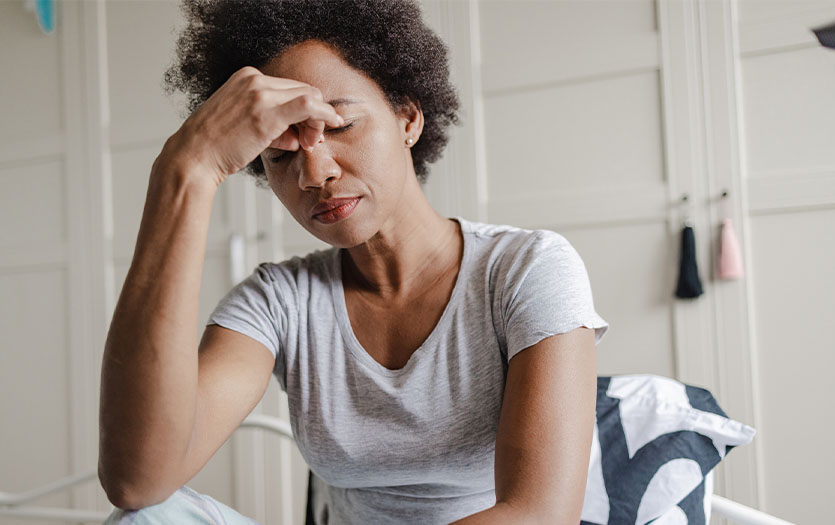
This post was written based on an appearance by Kenan Alibegovic, DO, PPG – Family Medicine, PPG – Primary Care, on the program PBS HealthLine.
While most individuals recover from the COVID-19 virus within a few weeks, a growing number have reported complications persisting beyond the initial infection, a phenomenon now termed long COVID. Current data from an ongoing household pulse survey conducted by the Centers for Disease Control and Prevention (CDC) indicate that approximately 18% of all adults say they have experienced long COVID. This chronic condition, characterized by a diverse range of unexplained symptoms, has been compared to myalgic encephalomyelitis/chronic fatigue syndrome (ME/CFS) and other misunderstood chronic illnesses that may occur following a severe infection. Here, we explore what is currently known about long COVID, common indications and strategies for prevention.
What is long COVID?
Long COVID refers to symptoms that persist for more than 12 weeks after your first confirmation of COVID-19. A meta-analysis of about 50 studies across 22 countries involving approximately 1.2 million people showed roughly 6.5% of people experienced long COVID symptoms. The three primary markers of long COVID are systemic, neural and respiratory. Systemic indicators include fatigue, muscle aches and mood swings. Neural involves mental fog, while respiratory affects breathing patterns.
How is long COVID diagnosed?
I always recommend that people have some confirmation of having SARS-CoV-2. This could be determined with either a positive test or if an individual didn't get a test to verify it but had close exposure and experienced COVID-19 symptoms, we could diagnose it empirically.
How long do the symptoms last?
The duration of long COVID manifestations can vary from person to person, mainly depending on if they were hospitalized or not. Complications typically lasted around four months for those with an outpatient infection. For hospitalized individuals, symptoms could last for up to nine months. Then, there's a very rare subset of people who experience effects for years. It's uncommon, but it does happen.
Who is most vulnerable to developing long COVID?
In general, anything that predisposes an individual to poor health will also predispose them to have long COVID. This may include:
-
Older adults
-
People living with underlying medical concerns such as diabetes, heart disease or respiratory issues
These factors can weaken the immune system, making it harder for the body to fully recover from the virus and increasing the likelihood of prolonged symptoms.
What is the best defense to prevent long COVID?
I'm an advocate of wearing masks. They are effective in reducing the risk of transmitting viruses. The best mask is the N95, which is specifically made to avoid certain bacteria and viruses of a certain size. Hand sanitizers are effective against most respiratory viruses, though soap and water are better for stomach viruses.
Once an individual contracts the COVID-19 virus, like many others, they will have some degree of natural immunity, and some studies have shown that it can be comparable to the vaccine. With that being said, receiving the vaccination provides a greater defense, decreases the chance of reinfection and minimizes the severity of the symptoms compared to those who are not vaccinated.
Learn more
If you're dealing with long COVID symptoms and need guidance, Parkview Physicians Group – Primary Care is here to help. Schedule an appointment or find a new provider using our Find a Doctor portal. You can also speak directly with a Parkview Access Center team member by calling (206) 785-2631 to find a provider in your area.



